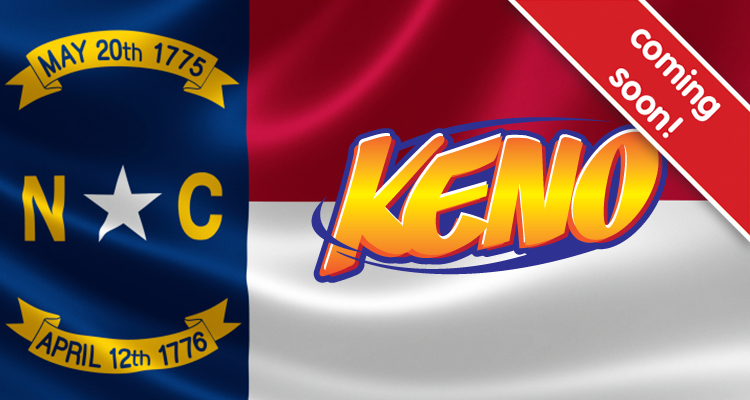Gambling options will be expanding this fall for the state-run lottery in North Carolina as regulators have agreed to allow the game of keno to be added to offerings. The North Carolina Education Lottery Commission decided on Tuesday to add keno to the list of approved games, a game that is already provided by 16 other states in the US alongside the lottery. The game of keno is expected to attract a younger audience as well as satisfy the need of legislators to have more money for education programs in the state.
An outside audit was conducted that shows around $66 million could be generated by the 5th year of operation as the game matures. Over a five year time frame, the game is expected to bring as much as $220 million in revenues. The state will receive a large portion of funds from the new game that will be used for public education needs. The audit did not say how much money from the game would go towards education but as far as the North Carolina lottery is concerned, $634 million was generated for education in 2016, which is around 25% of the close to $2.4 billion the state produced in gross sales from scratch-off tickets and numbers drawings.
This month, Democratic Governor Roy Cooper, alongside Senate Republicans, proposed that lottery funds be used for school construction as well as to provide principals and certain teachers with a raise in pay. Alice Garland is the Executive Director of the Lottery who spoke with members of the commission before the keno vote and stated that members of legislation and the office of the governor are looking for ways that the lottery can bring in more revenues to the state and that keno is ‘quite frankly a good source of new revenue’.
The game of keno is one that takes place in a public place such as a bar or restaurant. Consumers play the game by filling in a form and choosing how many of 20 numbers that are chosen at random they wish to pick plus how much will be wagered. Of course, the more money wagered, the larger the reward will be. Drawings take place every five minutes, with numbers one to 80 drawn.
Lottery Executive Director Garland would like to see the game started by October 15th with 500 retailers offering keno games. In a year’s time, Garland hopes there are at least 1,500 retailers participating. According to the audit, the game would be appealing to millennials, the group of consumers who have not shown an interest in the lottery games.
During the vote on Tuesday, none of the commissioners voted against moving the proposal forward. Yet there are still those in the state who are opposed. Opponents of the lottery feel that expanding the gaming options will increase the chance of more gambling addiction.
In an interview, as reported by the Associated Press, the North Carolina Family Policy Council Executive Director, John Rustin, stated that the intent is to get increased participation by individuals who are already playing the lottery or encouraging/enticing more citizens to play the games. Rustin tried to use studies in the interview to point out a link between gambling problems and an increase in both crime and domestic violence.
The proposal is the first change for the lottery since January 2016 when the Commission named Scientific Games and International Game Technology the new providers of equipment, software and tickets for lottery vendors of the state. It took almost two years for the officials of the North Carolina Education Lottery to review bids and decide on the companies they would be working with.



